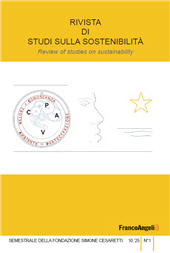Immigration-Migration and Ecological Human Imprint Philosophy and Life Prospective
1-22 p.
This study examines the ecological human imprint of migration and immigration, emphasizing the impacts of human population growth on global sustainability. As the world population surpassed eight billion in 2022, resource depletion, environmental degradation, and socio-economic challenges have intensified. Migration and immigration, while offering economic opportunities, also strain receiving countries' natural resources, infrastructures, and social fabrics. The paper introduces the Ecological Human Imprint Migration and Consequence Process (EHIMCP) model, which assesses migration's effects on ecological sustainability, economic stability, and societal balance. Key findings suggest that population growth exacerbates poverty, environmental degradation, and political tensions, necessitating sustainable policies and strategic resource management. The study underscores the urgency of balancing human population dynamics with environmental capacity to ensure long-term global stability. [Publisher's text]
Ist Teil von
Rivista di studi sulla sostenibilità : 10, 1, 2025-
Artikel aus derselben Ausgabe (einzeln erhältlich)
-
Informationen
ISSN: 2239-1959


